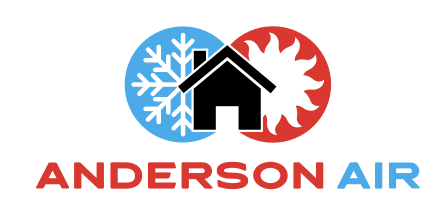How Seasonal Changes Affect Your HVAC System

HVAC seasonal maintenance: Your Key to Year-Round Comfort and Efficiency
Seasonal changes significantly impact your HVAC (Heating, Ventilation, and Air Conditioning) system’s performance and longevity. Understanding how to prepare HVAC for winter and summer, along with regular HVAC seasonal maintenance, is crucial for maintaining system efficiency and preventing costly repairs. Here’s a comprehensive guide to help you navigate these seasonal transitions effectively.
HVAC seasonal maintenance: Preparing HVAC for Winter
As temperatures drop, your HVAC system shifts from cooling to heating mode. It’s essential to prepare HVAC for winter to ensure optimal performance and comfort throughout the colder months. Here are some key steps:
1. Schedule a Professional Inspection: Before winter sets in, schedule a HVAC seasonal maintenance check-up with a licensed HVAC technician. They will inspect your system, clean filters, check thermostat settings, and ensure all components are functioning correctly.
2. Inspect and Clean Air Filters: Clean or replace air filters regularly to maintain airflow and improve indoor air quality. Clogged filters can strain your system and reduce efficiency.
3. Check Thermostat Settings: Adjust your thermostat settings for winter temperatures. Consider upgrading to a programmable thermostat to optimize energy usage and maintain comfort.
4. Inspect and Seal Ductwork: Inspect ductwork for leaks and seal them properly. Leaky ducts can lead to energy loss and uneven heating throughout your home.
Summer HVAC Tips
When transitioning to warmer months, your focus shifts to keeping your home cool and comfortable. Implement these HVAC seasonal maintenance tips to maximize efficiency:
1. Clean and Clear Outdoor Unit: Remove debris, leaves, and dirt from the outdoor unit (condenser) to ensure proper airflow. Trim vegetation around the unit to maintain a clear space.
2. Check Refrigerant Levels: Insufficient refrigerant can affect cooling efficiency. Schedule a professional HVAC service to check and top up refrigerant levels as needed.
3. Inspect and Clean Evaporator Coils: Over time, evaporator coils can accumulate dust and dirt, reducing their ability to absorb heat. Regular cleaning can improve efficiency and prolong the lifespan of your HVAC system.
4. Adjust Ceiling Fans: Set ceiling fans to rotate counterclockwise in summer to create a wind-chill effect, making your home feel cooler without lowering the thermostat.
Seasonal HVAC Care
HVAC seasonal maintenance is essential for maintaining efficiency and preventing breakdowns. Here’s what you can do throughout the year:
1. Change Air Filters Regularly: Replace air filters every 1-3 months, depending on usage. Clean filters improve indoor air quality and prevent strain on your HVAC system.
2. Monitor Energy Usage: Keep track of your HVAC system’s energy consumption. Unusually high bills may indicate inefficiencies or issues that need professional attention.
3. Schedule Bi-Annual HVAC seasonal maintenance: Schedule maintenance checks twice a year—before summer and winter—to ensure your HVAC system operates smoothly throughout the year.
4. Invest in Programmable Thermostats: Programmable thermostats allow you to adjust temperatures based on your schedule, optimizing energy usage and reducing utility costs.
System Efficiency
Maintaining system efficiency is not only about comfort but also about cost-effectiveness and environmental impact. Follow these tips to enhance your HVAC system’s efficiency:
1. Seal Home Envelopes: Inspect windows, doors, and insulation for gaps and drafts. Proper sealing reduces heat loss in winter and keeps cool air in during summer.
2. Upgrade to Energy-Efficient Units: Consider upgrading to energy-efficient HVAC units with high SEER (Seasonal Energy Efficiency Ratio) ratings to reduce energy consumption and lower utility bills.
3. Program Thermostat Settings: Program your thermostat to adjust temperatures automatically when you’re away or asleep. This simple step can save energy without sacrificing comfort.
4. Regular Maintenance: Schedule regular maintenance with a licensed HVAC technician to keep your system running efficiently and identify potential issues before they become costly repairs.
Conclusion
In conclusion, proactive seasonal HVAC care is key to optimizing system efficiency and prolonging its lifespan. By preparing your HVAC for winter and implementing summer HVAC tips, along with regular maintenance, you can enjoy consistent comfort and lower energy bills year-round. For professional assistance, contact a licensed HVAC technician to ensure your system operates efficiently and effectively in every season.
FAQs
1. How often should I change my HVAC air filters?
It’s recommended to change air filters every 1-3 months, depending on usage and filter type.
2. Why is regular HVAC maintenance important?
Regular maintenance helps prevent breakdowns, improves efficiency, extends the lifespan of your HVAC system, and maintains indoor air quality.
3. Can I clean the HVAC components myself?
While you can clean or change air filters yourself, it’s advisable to hire a professional for comprehensive HVAC maintenance to ensure safety and efficiency.
4. What is SEER, and why does it matter?
SEER (Seasonal Energy Efficiency Ratio) measures the efficiency of air conditioners and heat pumps. Higher SEER ratings indicate greater efficiency and lower operating costs.
